Students hope for improved relations with DePaul’s next president
As President A. Gabriel Esteban’s tenure nears its end, DePaul students are considering what they’d like to see from the next president, with hope that the next person to fill the seat shows more interaction with the student body.
On Thursday, March 17, it was announced that three finalists had been selected to fill the role of university president by DePaul’s Search Advisory Committee. The candidates have yet to be named, but the committee disclosed that final interviews would conclude by April 4.
While the committee evaluates the qualities of the three finalists, many students hope to see improved relations with the student body from the new president — an area in which many felt Esteban fell short.
“As for a connection, I think it’s been pretty lackluster,” freshman Ellie Shelton said. “The only interaction I had with [President Esteban] was at my freshman orientation, and I think it was a pre-recorded message.”
Many associate a private school education with a close-knit environment between students, faculty and administrators. DePaul’s website boasts a 16:1 faculty to student ratio and states, “faculty will know your name.”
Shelton believes that although DePaul is relatively large for a private school, students still expect a familiarity between students and administrators.
“We’re still smaller than state schools, so there should be this sense of closeness,” Shelton said. “That’s what draws a lot of people to private schools, and I don’t think we necessarily have that.”
Much of the search has been kept under wraps, as the committee hasn’t named a single candidate throughout the nine-month search, and the university has twice declined The DePaulia’s requests to interview committee chair Judy Greffin. While the search process has been less than transparent, the prospect of a new president could allow the DePaul administration to be more forthright with students.
In October 2021, students were concerned to learn that DePaul quietly outsourced the university’s counseling services to a third-party app. Esteban had the opportunity to inform students and staff of this change in an address in September, but did not do so. The move outraged both students and faculty more when they found that DePaul had no on-campus counselors during a period where symptoms of mental strain were at an all-time high.
An increase in attention and care to students’ health needs from the practices of Esteban’s term is an aspect many DePaul students feel is crucial from DePaul’s next president.
“Bare minimum, a president should care,” sophomore Skyler Peppo said. “I’d like the new president to take a more hands-on approach with the counseling department and improve the support it provides to DePaul students. . . it’s obviously majorly lacking.”
Esteban had previous experience in higher education before his time at DePaul, serving as Seton Hall University’s president from 2011 to 2017. Still, much of Esteban’s discipline is in business; he holds a doctorate in business administration and a master’s in Japanese business studies.
As credentialed as Esteban is in terms of institutional administration and business, DePaul Student Government Association President Watfae Zayed sees other areas of experience as more important for a university president.
“Experience in the classroom is always preferred,” Zayed said. “Administrative experience is not that important to me.”
Zayed, a student representative on the 15-person search committee, thinks a candidate’s practical background interacting with students is a much more important quality.
“Most administrators seldom interact with students, so they don’t really understand what life is like on campus,” Zayed said. “Students should be a priority over the budget, the board or any of the other administrative procedures.”
The strive for improvement — especially for an educational body — is a core part of an organization’s existence. For DePaul’s upcoming transition period, students feel that building a better connection between students and DePaul’s next president is paramount.
“I think a university president’s main responsibility to their student body is to show up,” Zayed said. “To be present not just physically, but emotionally and mentally for their students.”
Preceding Esteban, Rev. Dennis H. Holtschneider was DePaul’s president from 2004-2017. Some faculty members employed during Holtschneider’s era believe he excelled in student outreach and had a well-maintained presence among the DePaul community.
“He was very personable,” said Ed Lawler, an adjunct professor at DePaul. “I thought he had a nice touch with students.”
It was common to see Holtschneider walking around campus and engaging with students, according to Lawler.
“He’s 6-foot-4, so he’s hard to miss,” Lawler said. “He had a presence.”
A presence on campus and a strong focus on student connection may serve DePaul’s next president well, just as some believe it did for Holtschneider.
For Peppo, the key to an improved bond between students and Esteban’s successor is an increase in meaningful dialogue between the two parties — a dialogue she feels is a university president’s primary responsibility.
“How are you going to know what students need if you don’t even know your students?” Peppo said.


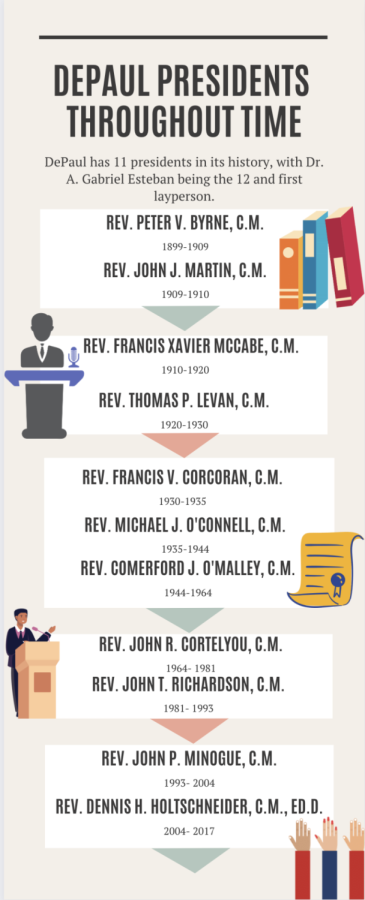

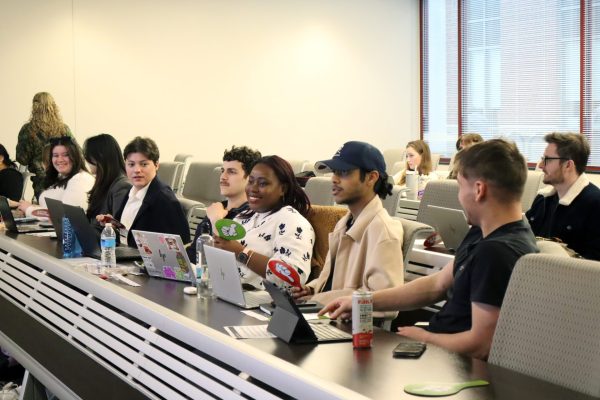
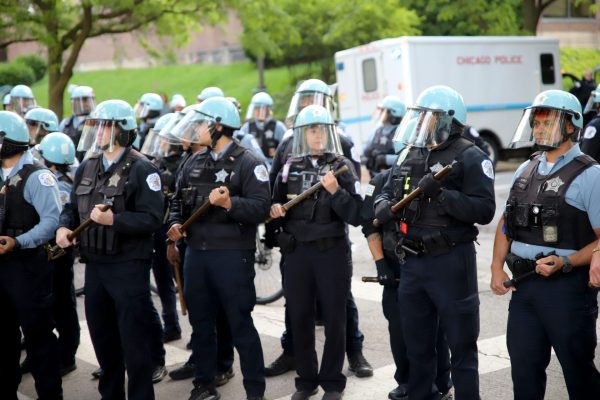
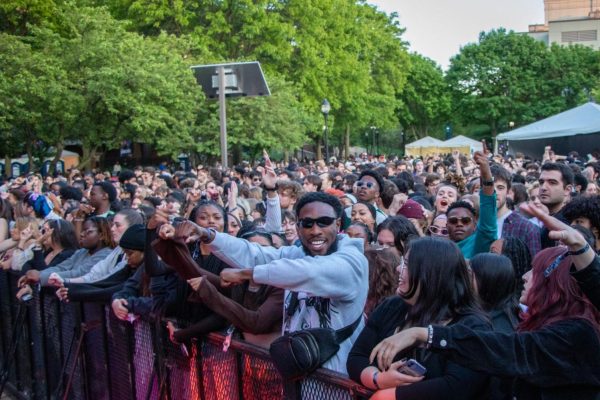
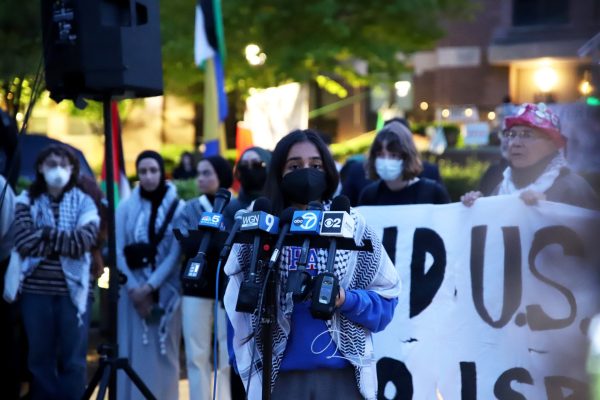




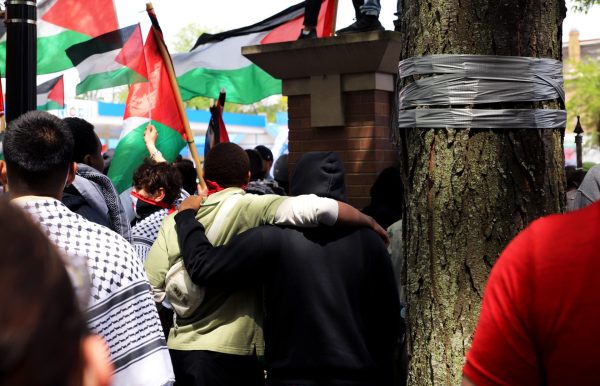
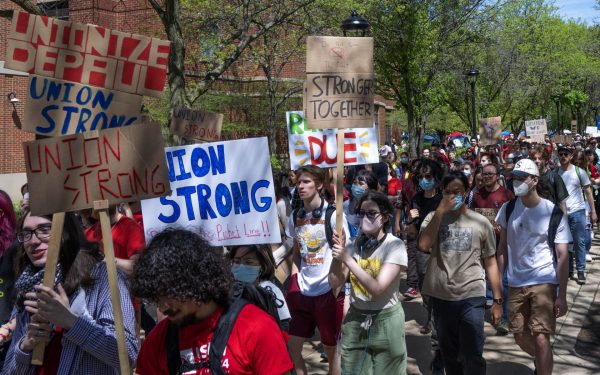
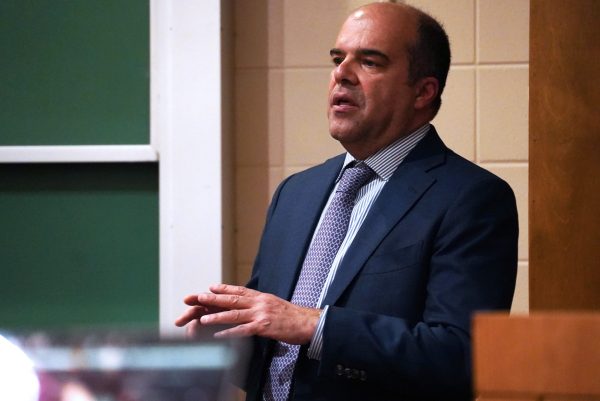


Kevin Bryan • Apr 8, 2022 at 5:54 pm
I don’t blame President Esteban for his lack of empathy. He’s not wired to care about others or understand the emotional needs of other humans. I do blame, however, those responsible for not noticing it during the last interview process. It should have been pretty obvious, as it has been to the students quoted in the article. Are the same people conducting the interview process this time around?